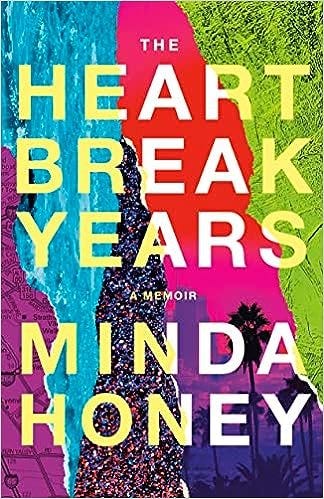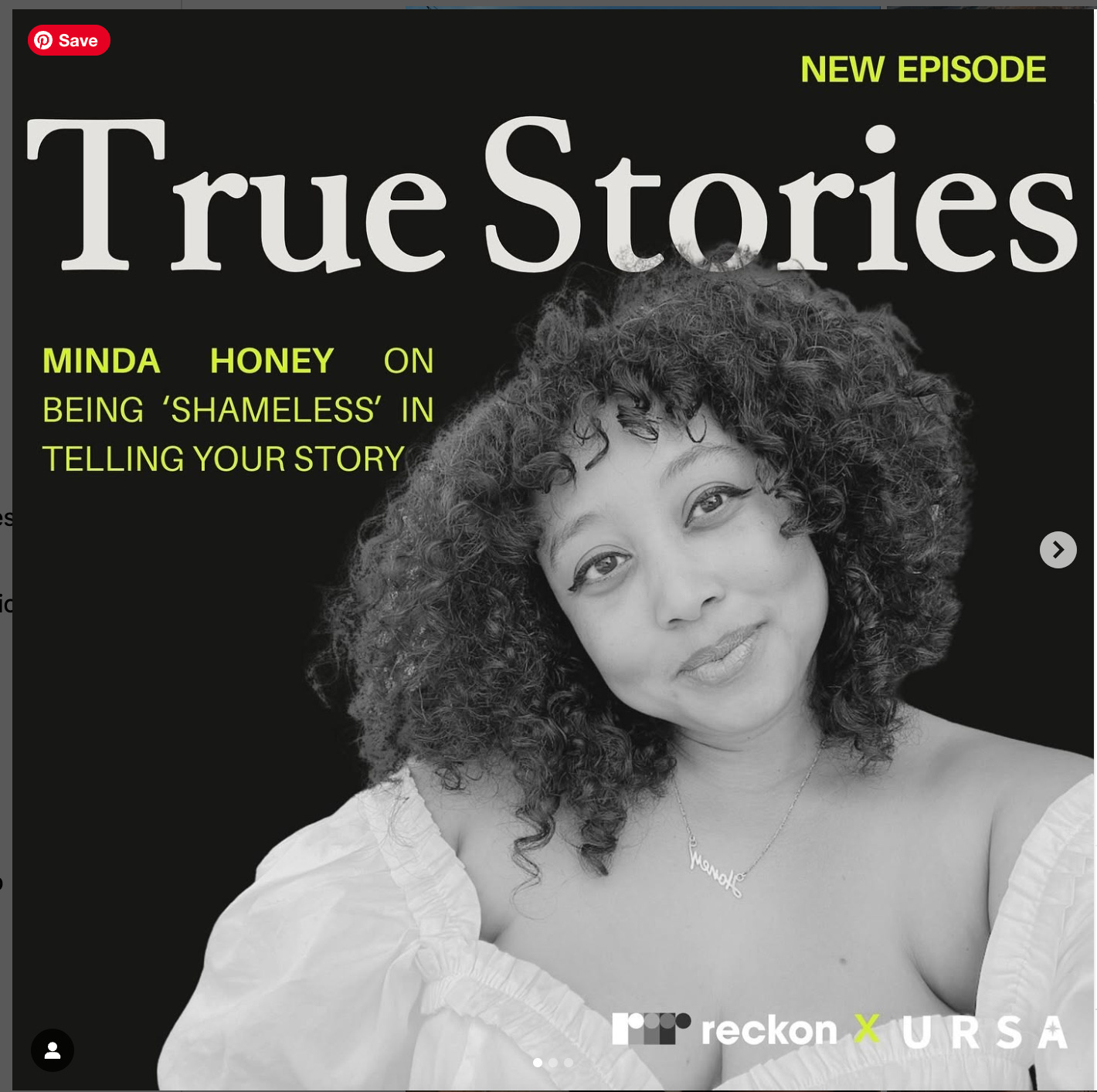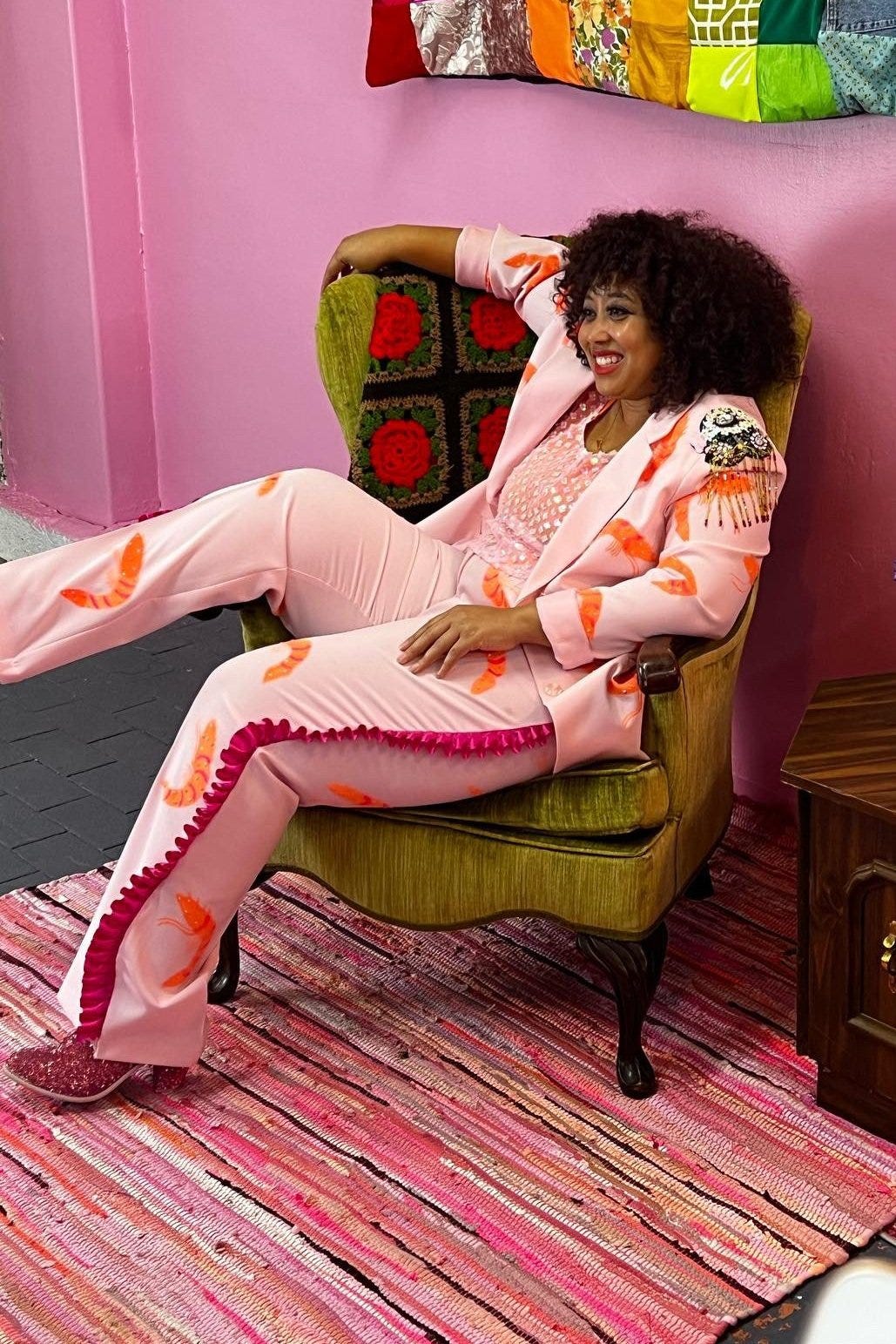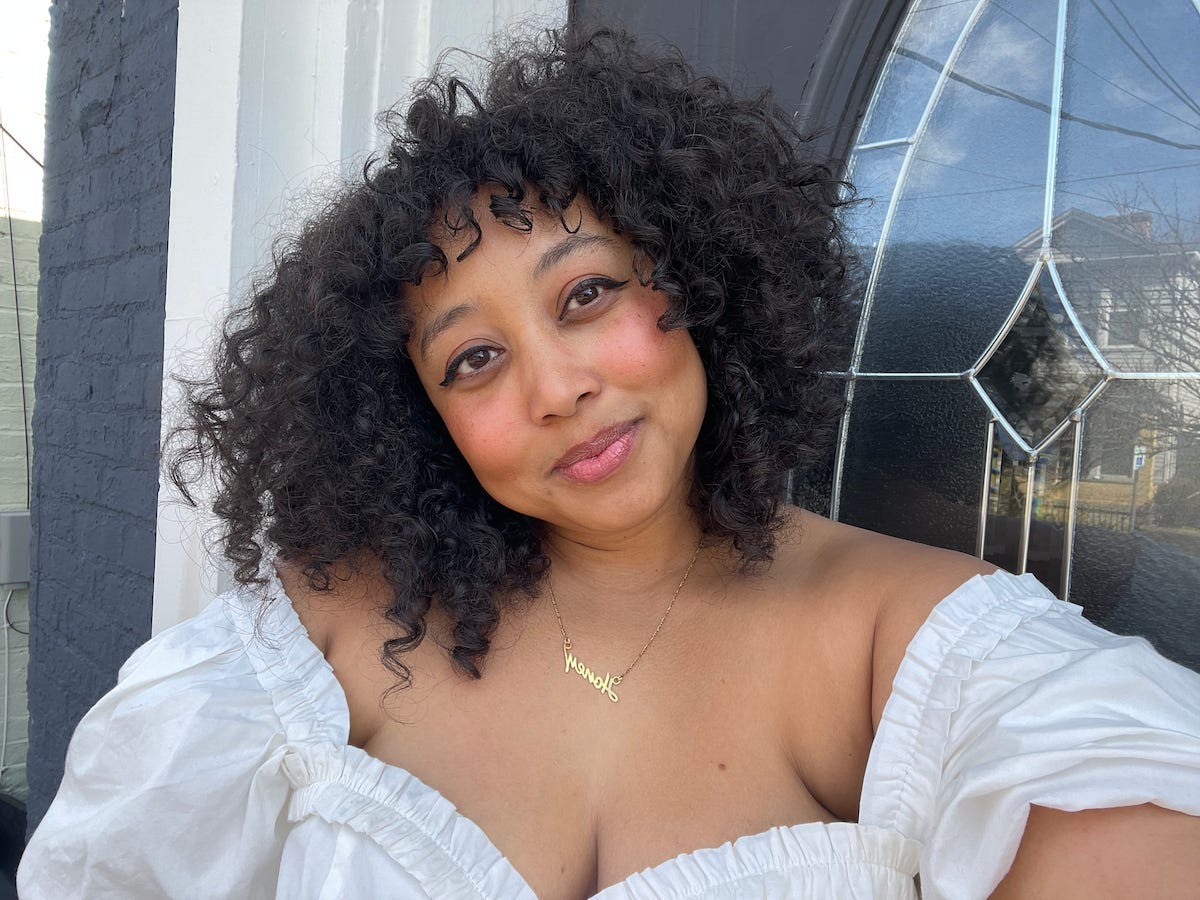The Good Southern Women Interview with Minda Honey
On wearing ruffle socks and being loud, refusing to fix plates, and growing beyond who you were expected to be
GSW is back! I haven’t posted one of these in a while, but I hope to pick the pace back up a bit.
If you’re new around here, GSW is a questionnaire-based interview series featured in F I E L D T R I P. It focuses on women-identifying artists of the South. This time, we feature author Minda Honey.
I met Minda Honey some years ago when she came down from Louisville, where she was then living, to attend The Porch’s workshop with Jericho Brown. She made an impression on me right away—such strong life-force in this woman!—and I was delighted when, in subsequent years, she began teaching for us and landed a book deal (not that those two things are connected in any way,). The Heartbreak Years, her debut essay collection, was published in late 2023; Kirkus Reviews praised its “frank storytelling [that] makes this book compulsively readable,” and Kiese Laymon said of the book, “Minda Honey has created a momentous piece of art, of course, but most importantly, The Heartbreak Years will teach a generation of us what’s possible when writing through, to, and beneath the pulpy inside of desire and fear.”
Minda has published essays everywhere from Harper’s BAZAAR to the Oxford American to Longreads, and she is now the editor of Black Joy at Reckon. Her work is also featured in Burn It Down: Women Writing about Anger, A Measure of Belonging: Twenty-One Writers of Color on the New American South, and Sex and the Single Woman: 24 Writers Reimagine Helen Gurley Brown’s Cult Classic. She hails from Louisville, Kentucky; lived for a spell in Cali; and is now based in Philly. We’re so honored to have her here today! (And with any luck we’ll have her back at The Porch again, too.)
How does the South inform your artwork?
I had to return to the South, where I was raised and feel most rooted, in order to finish my memoir about coming of age out of context as a Southerner in Southern California. The South brought me back to myself and who I was when I first hit the West Coast so I could more clearly see the ways I’d grown and changed during my time away.
Tell me about a Southern artist you identify with or admire, and why.
A Southern artist? How can I name just one? Right now two of my favorite Southern writers, Deesha Philyaw and Kiese Laymon have a nonfiction podcast, Reckon True Stories (I should mention I’m the editor of Black Joy for Reckon) where they chat it up with their favorite nonfiction writers (I should also mention I’m featured in one of the episodes!). It’s been great to see these two writers set the Southern POV on the genre as the standard.
Growing up, how did you conform to Southern codes of femininity?
I’ve forever been a girlie girl. I didn’t balk at the multiple silk bow barrettes my mother placed in my hair or the ruffle socks or the frilly bloomers under our church dresses. And when given the chance, I will always (and still do) choose a dress or a skirt over pants. But I think Southern codes of femininity operate differently for Black women because we must hew close to femininity in a way that pushes back against common Black women stereotypes that originated in the South like the Jezebel or the Mammy. So in this way, Black women exist outside of the gender binary — we are not shown the same deference that’s shown to white femininity — while also being oppressed by and beholden to the gender binary — fun!
Growing up, how did you push back against Southern codes of femininity?
If you ask my mom she will tell you by staying out to all hours of the night with my high school boyfriend — “What will their neighbors think?!” She’d ask me and I’d be like, “Well, If they’re out at 3AM too, I mean…” I was also fairly vocal from the outset about my lack of desire to ever have children. I’ve always been loud. And despite her concerns about my late night whereabouts, my mom (who is Filipino and grew up under a different set of codes of femininity) taught us girls we had the right to wear whatever we wanted to wear and our attire was not permission for anyone to touch us in any way. And by moving to California in my early 20s, I veered off the track my Southern peers were on, they were mostly all married with kids by 30. I also refused to fix my boyfriend’s plate — how am I supposed to know how much food that man wants?! (But I happily let my mommy fix mine as an act of love!)
In what ways are you no longer Southern?
Hmmm… this is an interesting question and mostly makes me think of all the ways I am STILL Southern — how I like my tea… SWEET! My willingness to smile as I’m passing strangers on the sidewalk. My liberal use of the word y’all.
LA felt to me like a city I couldn’t wrap my arms around. It was too large and too much of it remained unknown to me. Whereas in Louisville, KY, everyone knew whose grandbaby I was and it didn’t take long to figure out how you were connected to any given person. But my granny has passed, familial connections and relationships have changed, I’ve grown beyond who I was expected to be, so in that way these cultural tentacles that held me and held me in place no longer exist and they were very core to my Southernness beyond surface level traits like putting salt on my watermelon and knowing what frog gigging is.
What is a specific place in the South where you feel at home?
A lot of the places I’d cite are places that I either no longer have access to or no longer exist, like my granny’s back porch out in what was once the country (but got consumed by suburban sprawl!). But I still really love after a long road trip when I’m driving back into the city to cruise under that “Welcome to Louisville!” sign on the freeway. And no matter where I am in the South, I’m gonna feel right at home at a cookout in the park or a church fish fry (don’t forget to grab a slice of that caramel cake), or eating off a plate resting on my lap on somebody’s auntie’s plastic sealed sofa.
Tell me about a Southern expression that
a. You dislike
b. You love, or
c. That you’ve used in your work
I love “Y’all be careful now!” I live in Philly now and people look at me a little odd when I end every interaction wishing for their safety, but I won’t ever stop because it’s not a bad thing to hope someone returns home from you safely.
What do you like about living in the South?
I’ve lived in multiple regions of this country and I currently live in Philly, but I feel like no matter where I live there’s always a little South to tap into because most city’s Black communities have roots that stretch back to the South — Hello, Great Migration!
Share a memory of a time when you became particularly aware of some character of the South.
I moved to Southern California in my 20s and it was the first time I encountered brunch and “Sunday Funday.” Louisville in the early aughts was a place where you couldn’t buy booze at all on a Sunday. Bottomless mimosas were NOT a thing. But I caught onto day drinking culture very quickly lol.
Listen to Minda on Reckon True Stories
Minda on Cheryl Strayed’s Substack
Other Good Southern Women Q&As you might enjoy:
One Year of the Good Southern Women Interview Series







